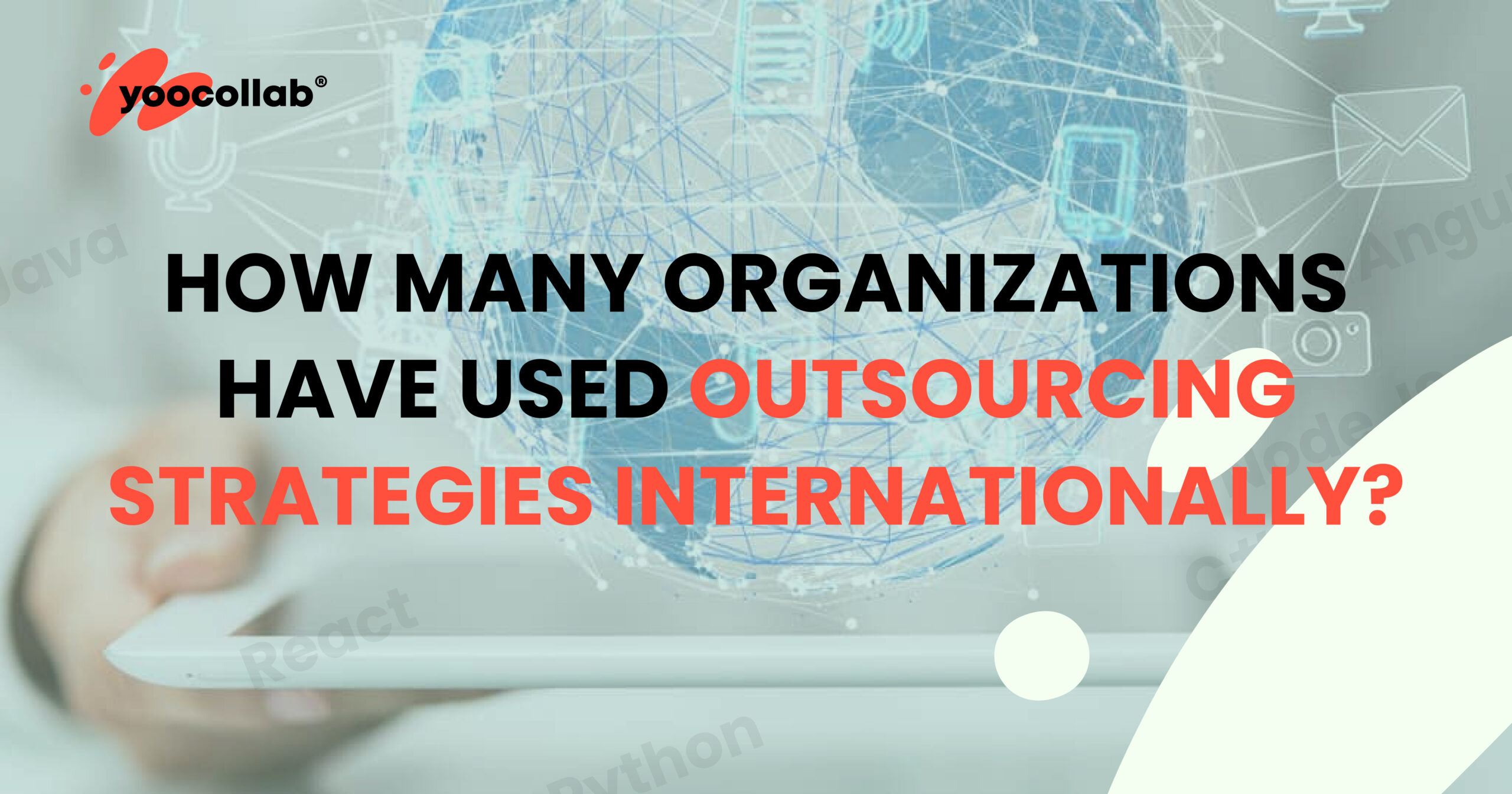
How many organizations have used outsourcing strategies internationally?
Jan 23,2023
What is outsourcing?
Outsourcing can be used for a variety of tasks such as customer service, IT support, data entry and more. This is typically done to reduce costs, increase efficiency, or gain access to specialized expertise or equipment. Outsourcing can be done for a variety of business functions such as manufacturing, customer service, accounting, and IT support.
There are different types of outsourcing, including:
- Offshore outsourcing: Outsourcing to a company or individual located in a different country, usually to take advantage of lower labor costs.
- Ofshore outsourcing: Outsourcing to a company or individual located within the same country.
- Insourcing: Outsourcing to a third-party company or individual that operates within the same organization.
- Outstaffing: Hiring of external staff for permanent or temporary work in the company, but under the control of the company.
Outsourcing can be a cost-effective way for businesses to access the resources and expertise they need to grow and stay competitive, but it’s important to carefully evaluate the risks and benefits and find a reputable and reliable outsourcing partner.
Benefits and drawbacks of outsourcing
There are several benefits and drawbacks of outsourcing for businesses:
Benefits:
- Cost savings: Outsourcing can lead to cost savings by reducing labor costs, and allowing the company to focus on their core competencies.
- Access to specialized expertise: Outsourcing can provide access to specialized expertise or equipment that may not be available in-house.
- Increased efficiency: Outsourcing non-core functions can lead to increased efficiency and allow the company to focus on its core competencies.
- Flexibility: Outsourcing allows companies to quickly scale up or down their operations as needed.
- Risk management: Outsourcing can also help companies manage risks by transferring certain responsibilities to a third-party.
Drawbacks:
- Loss of control: Outsourcing can result in a loss of control over certain business functions.
- Quality concerns: Outsourcing can lead to quality concerns if the third-party provider is not up to par.
- Communication issues: Outsourcing can lead to communication issues if the company and the third-party provider are located in different countries or time zones.
- Dependence on the third-party: Outsourcing can create dependency on the third-party and make it difficult to switch providers or bring the function back in-house.
Outsourcing can lead to legal and compliance issues if the third-party provider is not adhering to the same regulations as the company.
Companies can reap many advantages from outsourcing, such as cost savings and access to specialized skills. It’s also important to find a reputable and reliable outsourcing partner.
https://yoocollab.com/outsourcing-it-support/
Case studies of organizations that have used outsourcing strategies internationally
There are many examples.
- IBM: IBM has been outsourcing various business functions such as customer service, IT, and manufacturing to countries like India and China for decades. The company has been able to reduce costs and gain access to specialized expertise through outsourcing.
- Dell: Dell has also been outsourcing various business functions, particularly manufacturing, to countries like China and Mexico. By outsourcing manufacturing, Dell has been able to reduce costs and increase efficiency.
- General Electric (GE): GE has been outsourcing a variety of functions including IT, finance, and research and development to countries like India and China. The company has been able to reduce costs and access specialized expertise through outsourcing.
- Procter & Gamble: Procter & Gamble (P&G) has been outsourcing various business functions such as manufacturing, logistics and distribution to countries like Mexico, Brazil and China. The company has been able to reduce costs and increase efficiency through outsourcing.
- Unilever: Unilever has been outsourcing various business functions such as manufacturing, logistics and distribution to countries like Brazil, China and India. The company has been able to reduce costs and increase efficiency through outsourcing.
Companies are increasingly opting for nearshoring, which involves outsourcing services to a company or individual located in a neighboring country.
What is the future of outsourcing?
Advances in technology are expected to shape the future of outsourcing. Some of the key trends that are likely to shape the future of outsourcing include:
Automation and Artificial Intelligence (AI): Automation and AI are likely to change the way outsourcing is done, making it more efficient and cost-effective. This will lead to more tasks being outsourced to machines rather than people.
Increased focus on quality: Companies will likely place a greater emphasis on quality as they seek to improve their competitive advantage. This will lead to more outsourcing of high-value activities like R&D and product development.
It can also increase the speed of decision-making..
The gig economy is expected to continue growing, leading to more outsourcing of work to independent contractors and freelancers.
If you’re looking for a reliable and experienced outsourcing partner for your development needs, look no further than Yoocollab.
Our team of highly skilled developers are equipped with the latest technologies and have a proven track record of delivering high-quality and cost-effective solutions. Yoocollab offers flexible engagement models to create customized solutions that meet unique business needs. . Don’t miss out on the benefits of outsourcing and take your business to the next level with Yoocollab. Contact us today to schedule a consultation and learn more about how we can help you succeed.